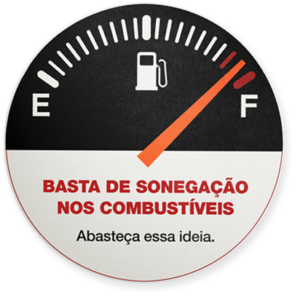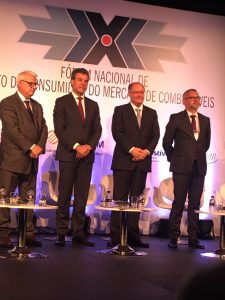 On August 22, 2017, the Legal Fuel Movement was launched. The event took place at the National Congress and counted on the participation of entities such as Ajufe - Association of Federal Judges of Brazil, ETCO, Fecombustíveis, Fiesp, OAB, among others.
On August 22, 2017, the Legal Fuel Movement was launched. The event took place at the National Congress and counted on the participation of entities such as Ajufe - Association of Federal Judges of Brazil, ETCO, Fecombustíveis, Fiesp, OAB, among others.
The Legal Fuel Movement defends and supports actions that come to combat anti-competitive and fraudulent activities such as tax evasion, default of taxes and fraud at the pumps. According to a recently launched study by the Getúlio Vargas Foundation (FGV), 4,8 billion reais in taxes are not being properly paid annually by some companies, the vast majority of whom do not have assets to honor these enormous debts accumulated by long periods. And they know it. And they continue to operate on the margins of the law, harming the legal market, job-creating companies and the final consumer. We want, and we need, to change these laws that favor regular debtors and that harm tax collection, harming the market, society and the consumer.
During the event, the bill that characterizes the regular tax debtor.
To learn more about the movement, visit the website www.combustivellegal.com.br
This is a project led by Sindicom (one of ETCO's associates) and has the support of several entities and associations such as Fiesp, Fecombustíveis, Sincopetro, Regran, IBP, ETCO, OAB, FIESP, Brasilcom and Unica.






